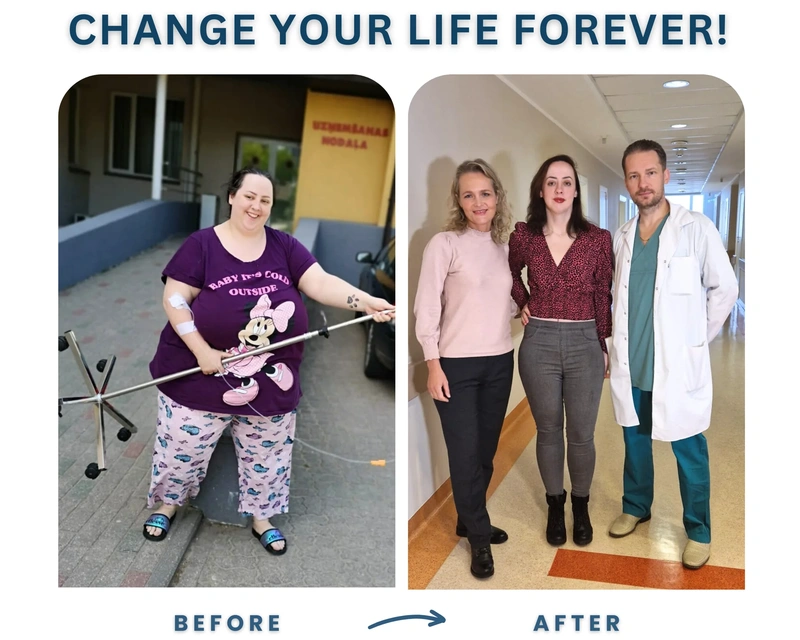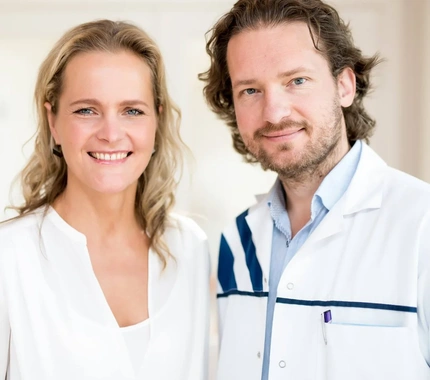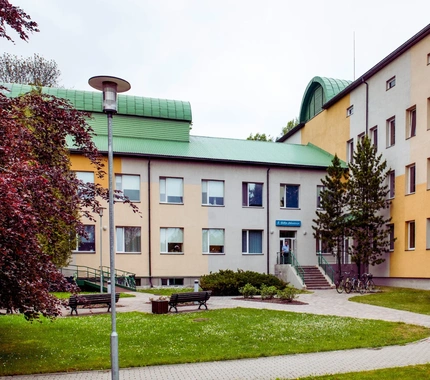
Safe Bariatric Surgery in Latvia, EU (from BMI 30+)
EXPERT BARIATRIC SURGERY FOR A LASTING WEIGHT LOSS & CONTROL
TOP-TIER QUALITY EU REGULATED MEDICAL CARE
SAVE 50-70% COMPARED TO PRIVATE SURGERY COST AT HOME
€5870 (~£ 5100)
€4990 *(~£4300)
Book a free 30 min consultation!
CLICK HERE!
*A discount price applies to gastric bypass, sleeve gastrectomy, mini gastric bypass bariatric surgeries until July, 2025.
🎈🎈🎈NEW SINCE 2025 - WE ARE DELIGHTED TO OFFER A FINANCE OPTION TO OUR UNITED KINGDOM CUSTOMERS!
☘️☘️☘️ TO OUR IRISH CUSTOMERS - claim back 80% of the surgery package cost back from HSE on the EU CROSS-BORDER HEALTHCARE DIRECTIVE!
THE BARIATRIC SURGERY PACKAGE WITH WEIGHT LOSS LATVIA INCLUDES:
✔️ Assessment & free initial consultation;
✔️ Pre- and post- operation recommendations, documentation, information;
✔️ Meet & greet, accommodation in a 4* SPA Hotel, transfers, personal assistance;
✔️ Preoperative consultations with a bariatric surgeon and anaesthesiologist, along with health examinations (blood tests, urine tests, ECG, chest X-ray, under anaesthesia (included));
✔️ Surgery performed at a reputable private feel hospital in Latvia, EU, with recovery in the post-operative ICU;
✔️ 3-4 days of post-surgery recovery and aftercare in the hospital (not a hotel);
✔️ 24/7 personal care & assistance;
✔️ Consultations on ongoing diet, lifestyle adjustments, and follow-up care;
✔️ 3-month subscription to personalised dietary guidance from a UK-based certified bariatric dietitian Van Patel;
✔️ Continuous support and advice privately and via Weight Loss Latvia Facebook group.
WE WARMLY WELCOME YOU FOR YOUR WEIGHT LOSS SURGERY TO LATVIA!
With us, you’ll have access to:
- The most experienced bariatric surgery team of Latvia with two expert bariatric and general surgeons (both surgeons are UK GMC registered),
- Surgery in a certified private feel hospital, with post-op ICU and fully equipped for emergency care (not a clinic),
- Patient care that meets EU and WHO regulations and the highest standards,
- Recovery in the hospital, ensuring continuous medical supervision (not a hotel),
- A personalised surgery and follow-up package designed to give you peace of mind and allow you to focus fully on your journey to better health.
Weight Loss Latvia offers gastric bypass, gastric sleeve, mini gastric bypass and revision bariatric surgeries at Sigulda Hospital, one the leading bariatric surgery providers of Latvia, EU, since 2009.
Our bariatric surgery team consists of two certified and highly qualified general and bariatric surgeons Dr Olegs Kozlovskis and Dr Juris Zarinovs who collaborate closely for all bariatric surgeries. Patients undergo a 3-4 day post-operative recovery period exclusively within the hospital, ensuring optimal care and long-term success.
Our patients predominantly travel from Ireland and the United Kingdom, also Sweden, Denmark, Germany and other countries. Also many people from Norway and Iceland have highly evaluated Sigulda Hospital bariatric services.
SEE OUR PATIENT SUCCESS STORIES!
Read more Patient Reviews on TRUST PILOT
EU CROSS BORDER HEALTHCARE DIRECTIVE - CLAIM YOUR SURGERY COST BACK
To our patients from Ireland and other EU countries: You have the right to undergo bariatric surgery in another EU country, including Latvia, and to seek reimbursement for your surgery costs through your public healthcare system (in Ireland, this is the HSE).
Read more about how to apply on Weight Loss Latvia Blog!
ABOUT OBESITY AND BARIATRIC SURGERY
Obesity is a growing and significant health issue globally. It is characterised by an excessive accumulation of body fat and is associated with a higher risk of various health problems such as Diabetes type 2, cardiovascular diseases, hypertension, sleep apnea, back and joint pain, PCOS, higher risk for certain cancers. It can also contribute to mental health issues such as depression. Severe obesity negatively affects individual's working, family and social life.
Bariatric surgery, such as gastric bypass or sleeve gastrectomy, is increasingly considered the most effective treatment of morbid obesity. Weight Loss Latvia Bariatric team specialises in weight loss surgery since 2009. With us you will be in safe and professional hands for your medical treatment.
If your Body Mass Index (BMI) is 30+, you have yo-yo dieted a long time and you suffer or need to prevent further development of obesity related health issues, and you are ready to change your life forever, weight loss surgery might be the right tool for you.







